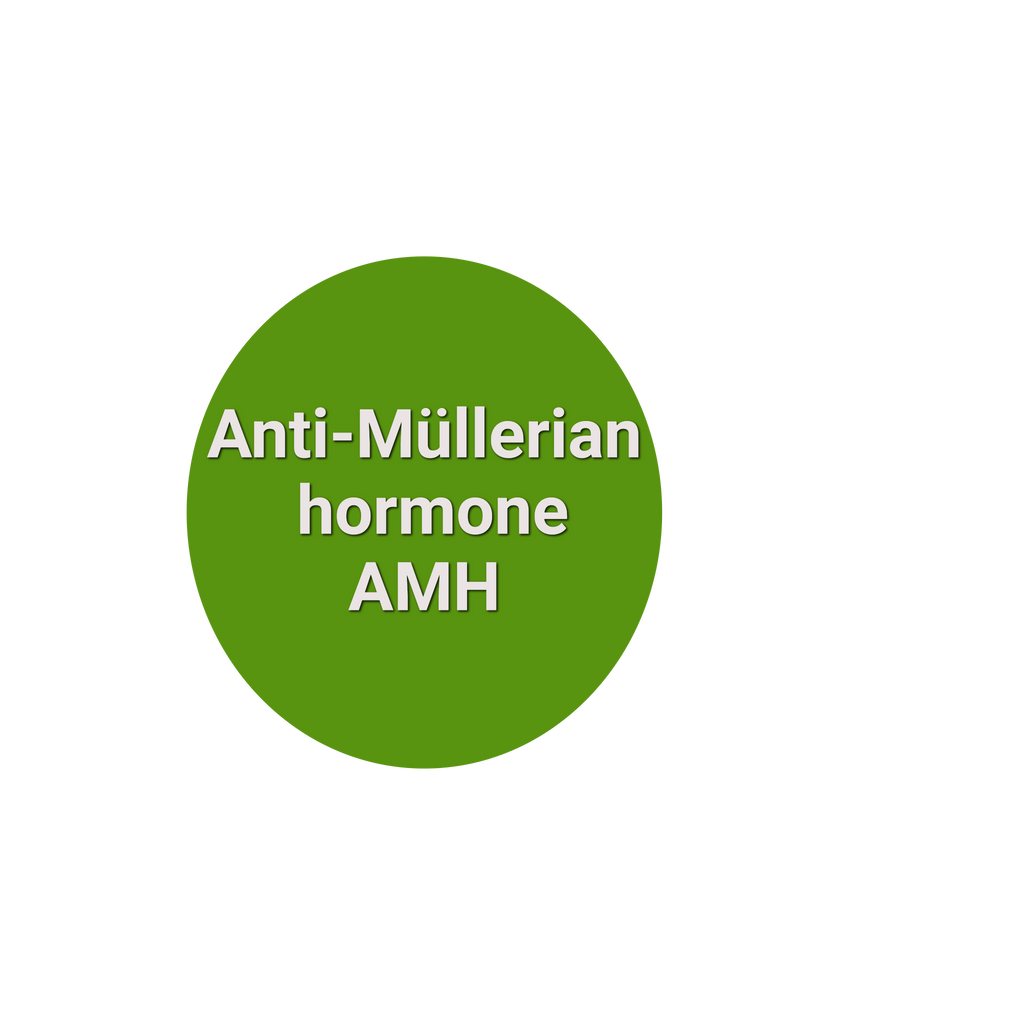

Anti-Müllerian hormone (AMH)
$ 109.99
Anti-Müllerian hormone (AMH)
How is it used?
Anti-Müllerian hormone (AMH) is not a routinely ordered test but may be useful in specific circumstances.
AMH is a hormone produced by reproductive tissues. Its role and the amount normally present varies depending upon sex and age. (See the "What is being tested?" section for more on this.)
AMH test in women:
Women of childbearing age may have an AMH test ordered along with other hormone tests, such as estradiol and FSH, to estimate the remaining time left to conceive (ovarian reserve). These tests are also useful in evaluating ovarian function and possibly in predicting the onset of menopause.
AMH may sometimes be ordered for a woman who will be undergoing assisted reproduction procedures such as in vitro fertilization (IVF); the concentration of AMH present is related to her likely responsiveness to treatment. A low level of AMH reflects poor ovarian response, indicating that a decreased number of eggs would be retrieved after ovarian stimulation. For this purpose, it is typically ordered along with other hormone tests and a transvaginal ultrasound (to count the number of follicles as a reflection of the woman's egg supply).
An AMH test may be used to evaluate polycystic ovarian syndrome (PCOS). AMH may be elevated due to the increased number of follicles present.
Some ovarian cancers produce increased levels of AMH. If the hormone is initially elevated, then the test can be used as a tumor marker to help evaluate response to treatment and monitor for recurrence.
When is it ordered?
An AMH test may be ordered in women when evaluating ovarian function, fertility issues, especially when considering assisted reproduction procedures such as in vitro fertilization (IVF), and when a health practitioner wants to determine a woman's likelihood of entering menopause.
